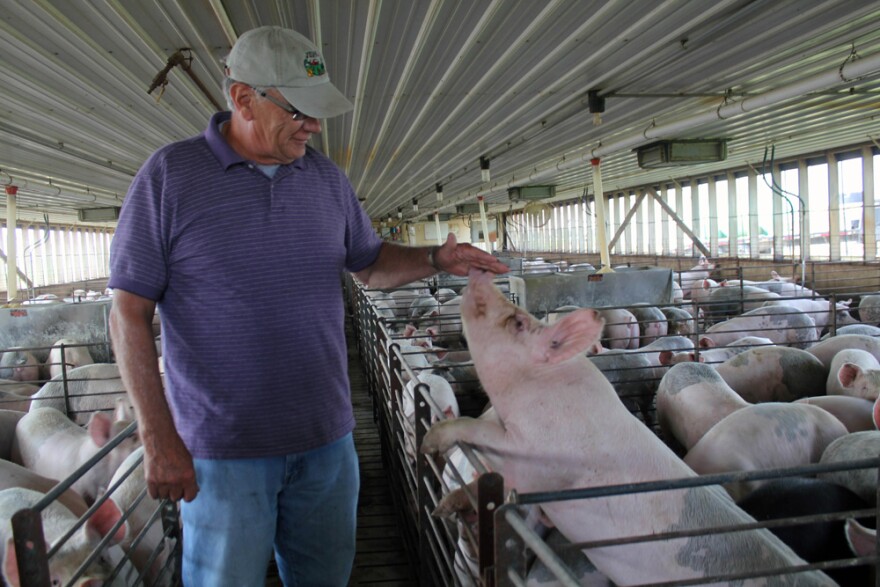In his home in Forest City, Iowa, Riley Lewis has the original warranty deed for his farm, signed by President James Buchanan and issued to one Elias Gilbert, a soldier who served in the War of 1812.
“He moved here, northeast of Forest City, and lived there for one year,” Lewis said, which was the obligation veterans had if they homesteaded. “And then he sold it to Robert Clark, who was the founder of Forest City.”
In 1871, Lewis’ great-grandfather bought 40 acres of that original homestead. Over the years, Lewis’ family acquired the rest of the 160 acres and has farmed here ever since.
“The land is slightly rolling. It was formed by glaciers that came here and the land is really fun to see the seasons change during the year, from the winter to the summer,” Lewis said. He grows corn and soybeans to feed his hogs.
“I really enjoy the part of raising crops and raising animals. There’s always something about seeing rows of corn that just extend beyond the horizon and how fast they grow and how the seeds germinate and just all the things that have been provided by God for us to enjoy out here. As a farmer, I’ve always thought that I’m in a faith-based operation because nobody depends upon what the good Lord gives us more than a farmer.”
One of Lewis’ sons currently works alongside him and he has also worked with his own father and grandfather.
“All of the farms that we go on have memories in my mind,” he said. “Where dad got stuck. Or my grandfather, the bales fell off of the hayrack on the side hill. We always remember about a major breakdown or a year when a hail storm came through, or high winds.”
Lewis says much of his extended family now live off the farm but came back for a family reunion last year. In some ways, he says they were just like the urban tourists who come through to see how he raises his hogs. But there’s a fundamental difference.
“They enjoy bringing their children with them because it’s all part of their roots,” he said, “and they want to share that with them.”
Lewis never strays far from his roots, even if he travels off the farm.
“Those memories on the farm are always embedded in you,” he said, “especially when you take over what your dad and your grandfather worked so hard to acquire.”
With his hog barns and those managed by other farmers he contracts with, Lewis says he’ll market about 24,000 hogs in a year—enough pork to feed a small city the size of Ames, Iowa. It’s a whole lot more than Elias Gilbert ever did with the land. But Lewis says it’s the result of staying abreast of technology, market demand and other changes.
“Change is inevitable in farming,” he says. “If you don’t change, it usually means that you’re getting close to retirement.”
Lewis makes no indication he’s got retirement on the mind. If anything, he’s thinking ahead to the next season.
“There’s just something about working up a farm and smelling that fresh soil, moist, ready to grow things,” he said, “that just really feels like I’m home. This is where I’m home-based and the land is ready to go and it’s time to get her done.”
Harvest Public Media, based at KCUR, is a collaborative public media project that reports on important agricultural issues in the Midwest. You can read more about the project on their website.




